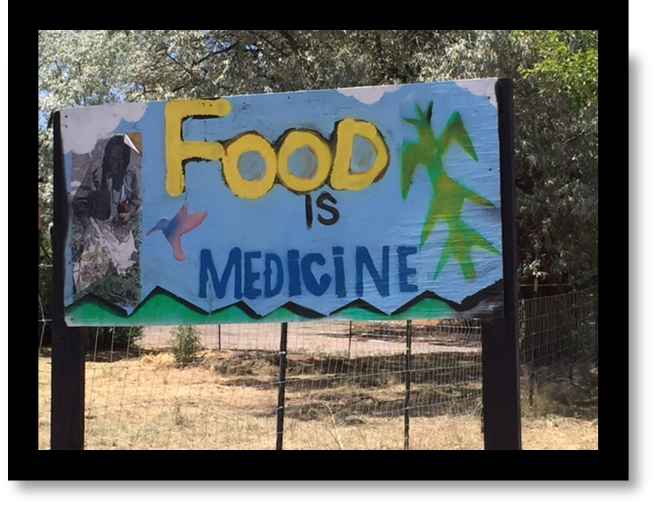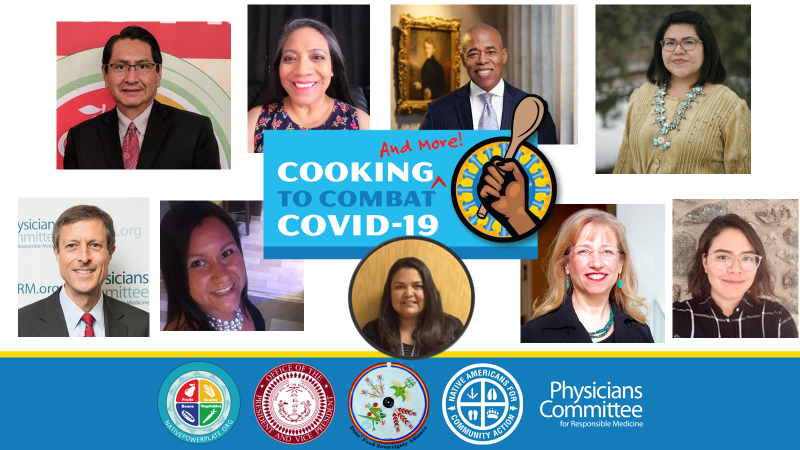Author:
Caroline Trapp, DNP, ANP-BC, CDCES, DIPACLM, FAANP
Director, Diabetes Education & Care
Physicians Committee for Responsible Medicine
Thank you, Denise, for inviting me to write for the Plant-Based Nutrition COI!
Since 2010, I’ve had the privilege of working with many citizens of the Navajo Nation to address diabetes. American Indians and Alaska Natives have the highest rates of type 2 diabetes in the United States. The people of the Navajo Nation, based in New Mexico, Arizona, and Utah, have also been especially hard hit by COVID-19, in large part because of preexisting diabetes, as well as factors that make the spread of the virus difficult to contain such as multigenerational households and lack of running water in more than 30% of homes. I’ll talk more about COVID-19, but first, allow me to help those who are unfamiliar to learn more about the Navajo People, who inspire me constantly with their resilience, ingenuity, and good humor.

The Navajo often use the expression that “Food is Medicine,” and the traditional foods that are most highly regarded are plants. The Navajo and many other tribes had an agricultural practice called the Three Sisters, in which corn, beans, and squash are grown together. This clever technique produced a bounty of foods that taste good together, and the plants support each other: Beans fix nitrogen in the soil, corn provides a pole for the beans to grow up, and the squash leaves shade and shield the soil from weeds. Another interesting practice is the creation of culinary ash, made by burning juniper leaves. This ash is added to blue corn to make a purple-colored mush that was once a dietary staple. A recent study found that just 1 gram of this ash contains as much calcium as an 8-ounce glass of milk—long before cow’s milk, there was juniper ash! Sadly, the indigenous people of what is now the United States have a traumatic history, and forced relocation from ancestral lands, environmental degradation from dams and mining, and provision of food commodities such as canned meats, processed cheese, lard, and powdered milk have all contributed to significant changes in the diets, and the health, of Native Americans.
Members of the Plant-Based COI are well aware of research on the benefits of plant-based nutrition to prevent and reverse type 2 diabetes. This information has been well received by many within the Navajo Nation, as a plant-based diet may be viewed as a way to decolonize current dietary practices, reclaim health by using Food as Medicine, and practice respect for the land and animals. Navajo people who have shifted from a meat-based to a plant-based diet have experienced weight loss, reversal of type 2 diabetes, reduction in cholesterol and blood pressure, and relief from migraine headaches and osteoarthritis. Hospital employee wellness programs at the Tsehootsooi Medical Center in Ft. Defiance, Ariz., and the Gallup Indian Medical Center in Gallup, N.M., over the last few years are examples of what is possible (and will be discussed at a presentation F10 at the ADCES Annual Meeting next month).
While diet alone cannot prevent or cure COVID-19, a diet that improves blood glucose, reduces inflammation, and is high in antioxidants may improve outcomes with the virus. With the rapid spread of COVID-19 on the Navajo, Hopi, and other indigenous Nations, a coalition was formed that included the Navajo Nation Office of the President and Vice President, Native Americans for Community Action (NACA), the Diné Food Sovereignty Alliance, and the Physicians Committee for Responsible Medicine to plan and present a four-hour Webinar on May 31 called “Cooking to Combat COVID-19” free to the community. Speakers from Arizona, New Mexico, Michigan, and Washington, D.C., presented research, practical information, and cooking lessons. Registered dietitian candidate Whitney Brooks from the Seneca Nation in New York discussed the tremendous value of eating beans every day—what was once a tradition and now an opportunity to reclaim health.

Navajo Nation President Jonathan Nez, who himself has followed a plant-based diet for more than two years, provided welcome remarks, and Physicians Committee President Neal Barnard, MD, offered an update on COVID-19 and the many benefits of plant-based diets to address comorbidities such as diabetes that increase the risk of poor outcomes. Videos of the full program, divided into three parts, along with speaker PowerPoints and recipes, may be viewed at www.NativePowerPlate.org.
Many other nutrition education resources that have been created over the years in partnership with other individuals and organizations for Indian Country are available from this site at no charge. This is a difficult time for all, especially brown and black people who have long suffered from tremendous, preventable health disparities. Nutrition education can be empowering, particularly when it is tied to culture and provided by members of the community. It is a good first step to a more hopeful future.
AADE_PBN_COI_Blog_August_2020.docx